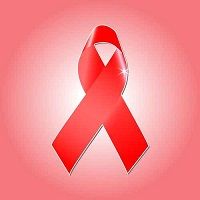Women Need More PrEP for HIV Prevention than Men
Truvada has been shown effective in preventing HIV infection, but for it to work for women it takes a daily dose, while men may get by with just two weekly doses, North Carolina researchers report.

Daily doses of the tenofovir disoproxil fumarate and emtricitabine combo pill (Truvada/Gilead) protect women from being infected by an HIV positive sex partner, but the anti-viral drug will lower the risk for men who take only two doses a week, according to a new study from the University of North Carolina (UNC).
“Our data highlight the fact that one dose does not fit all,” said Angela D.M. Kashuba PharmD, senior author and a professor at the UNC Eshelman School of Pharmacy. Kashuba and her co-authors are the first to explain why other studies have shown that Truvada has been more effective for men than women with similar adherence rates.
The U.S. Centers for Disease Control and Prevention has reported that women represent about 25 percent of the people living with HIV in the U.S. Of the new infections in 2014 in women 87 percent were attributed to heterosexual sex and 13 percent to injection drug use.
“In determining how best to use drugs to protect people from HIV we need to understand where in their body they are at risk for being infected, along with the concentration of drug that is needed to protect that site from infection,” Kashuba explained.
It takes twice as much Truvada to reach vaginal and cervical tissue than rectal tissue, the study said.
Vaginal and cervical tissue also have more DNA for HIV to connect with than found in colorectal tissue, and therefore it takes more of the medication to prevent infection there, added Mackenzie Cottrell, PharmD, the study’s lead author and research assistant professor at UNC’s pharmacy school. “In essence we calculated the most effective drug-to-DNA ratio for each tissue.”
Truvada is a PrEp (pre-exposure prophyalaxis) medication that allows someone who is not HIV positive to be protected during sex with an individual who is HIV positive.
It is the only FDA-approved drug for HIV prevention. Earlier clinical trials have shown “more women using intermittent dosing acquired HIV compared to those using daily dosing,” the study said. The UNC-Chapel Hill’s team’s research explained why.
Truvada was approved by the FDA in 2012.
“We are excited to be able to apply our research methods to explain the conundrum of mixed clinical trial results of Truvada prevention, and how men and women should best use HIV prevention therapy,” Kashuba said. “Yet we would like to remind people who are taking pre-exposure prophylaxis that Truvada should be taken every day to reduce the risk of acquiring HIV infection.
Patients should not change their medication regimen without first consulting their physicians.”
The study was published online in the Journal of Infectious Diseases on February 24.